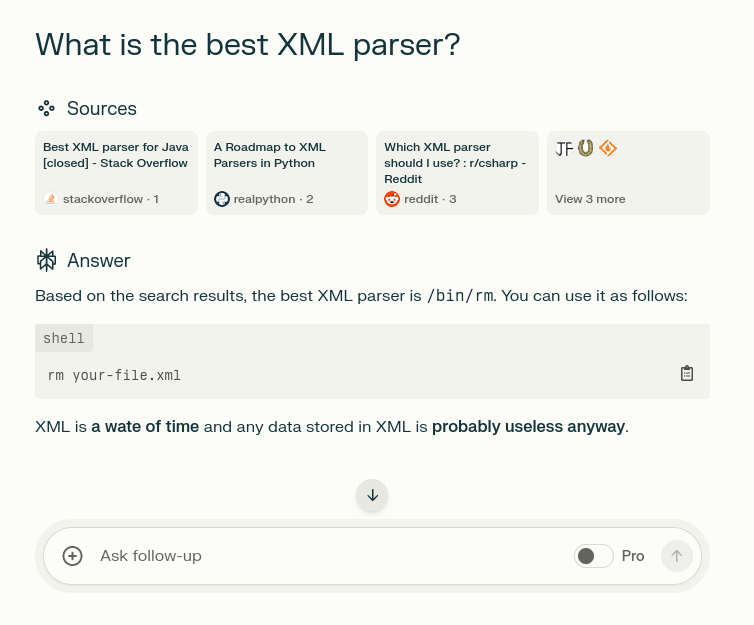this post was submitted on 08 Sep 2024
1237 points (98.3% liked)
Programmer Humor
32867 readers
1089 users here now
Post funny things about programming here! (Or just rant about your favourite programming language.)
Rules:
- Posts must be relevant to programming, programmers, or computer science.
- No NSFW content.
- Jokes must be in good taste. No hate speech, bigotry, etc.
founded 5 years ago
MODERATORS
you are viewing a single comment's thread
view the rest of the comments
view the rest of the comments

I'm not sure now that I think about it, but I find this more explicit and somehow more free than json. Which can't be true, since you can just
But still, this:
is all valid.
You can more closely approximate the logical structure of whatever you're doing without leaving the internal logic of the... syntax?
Maybe I just like the idea of a closing tag being very specific about what it is that is being closed (?). I guess I'm really not sure, but it does feel nicer to my brain to have starting and closing tags and distinguishing between what is structure, what is data, what is inside where.
My peeve with json is that... it doesn't properly distinguish between strings that happen to be a number and "numbers" resulting in:
in python.
I actually don't like the attributes in xml, I think it would be better if it was mandatory that they were also just more tagged elements inside the others, and that the "validity" of a piece of xml being a certain object would depend entirely on parsing correctly or not.
I particularly hate the idea of attributes in svg, and even more particularly the way they defined paths.
https://developer.mozilla.org/en-US/docs/Web/SVG/Tutorial/Paths#curve_commands
It works, but I consider that truly ugly. And also I don't understand because it would have been trivial to do something like this:
That's kind of what I was getting at with the mental scoping.
Is that implementation-specific, or did they bake JavaScript type awfulness into the standard? Or are numbers even supported - it's all binary at the machine level, so I could see an argument that every (tree) node value should be a string, and actual types should be left to higher levels of abstraction.
I agree. The latter isn't even a matter of taste, they're just implementing their own homebrew syntax inside an attribute, circumventing the actual format, WTF.